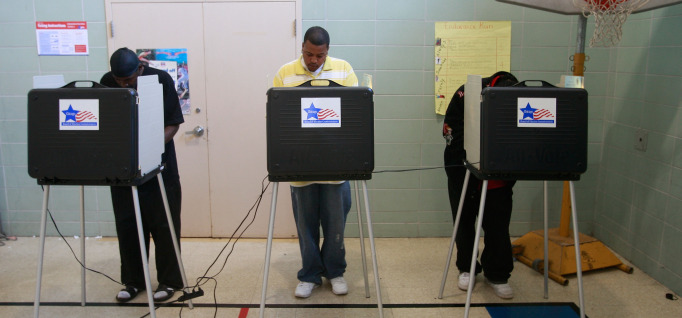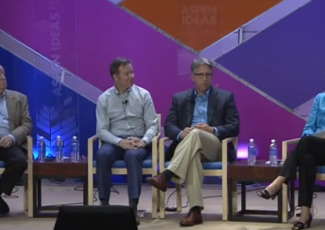College System Sells Voters on Bond Measure Redo
By Sonya Stinson
October 24, 2014
In economically booming Houston, Lone Star Community College System touts its workforce development mission to win passage of critical funding.
Bond measures provide crucial funding for community colleges, but voters aren’t always motivated to pass them.
A bond to upgrade facilities across the Lone Star Community College System (LSCS) didn’t succeed in May 2013, but with a focus on the system’s role as a catalyst for workforce development, its leader hopes that the second time will be the charm. On Nov. 4, Houston area voters will get to vote yay or nay on the $485 million LSCS bond measure.
Selling the college’s link to the local economy’s success
When college administrators and other bond proponents examined why the measure failed on the first try, they concluded they hadn’t done a sufficient job of communicating its benefits, laying out the long-term financial plan for implementing it, and seeking buy-in from various interest groups in metro Houston’s diverse 2 million-plus population. This time around, they decided to put more effort into explaining why they were asking for the community’s support, says LSCS Chancellor Stephen Head.
“In the Houston area, as it is across the country, education is the key to success,” Head says. “We are saying that the college is the key to economic success, prosperity and development.”
One of their main selling points is that LSCS provides workforce training for many of the Houston area’s top industries, some of which are facing a shortage of skilled workers. College administrators held several meetings with members of the business community, including those who sit on LSCS’s Chancellor Advisory Committee, to pinpoint the industries with the highest demand, such as oil and gas, health care and computer technology.
LSCS is a major training center for local police and firefighters, and the system also offers programs in engineering and manufacturing technology, welding, computer numerical control (CNC) machine operation and many other occupations. And just about all of them are experiencing workforce shortages.
“We had one class at one of our centers that had 19 CNC operators, and 17 were hired before we finished the certificate,” Head says. “We’re working with the employers to allow our students to finish their certificates while they’re working.”
Desperately needed funding
With an explosive 50 percent growth since 2007, LSCS is in dire need of new classroom space and workforce training facilities. LSCS is one of the nation’s largest and fastest growing community college systems: About 83,000 students are enrolled in credit programs, and another 10,000 to 12,000 students are taking noncredit and workforce training courses, Head estimates.
The fall 2013 enrollment was up by 5,200, or 7 percent, over the previous semester. “We’re at about 85 percent of capacity right now, but our growth is just phenomenal, and the Houston metropolitan area is growing,” he says. “We’ll be over 100,000 students next fall, and we’re expecting 4 to 5 percent growth for the next six to seven years.”
If the bond measure passes, the money will pay for 686,000 square feet of additional learning space, with new buildings planned for each of the six campuses, along with other improvements. The bond proposal includes funding for three advanced technology centers — refinery processing, HVAC and refrigeration, and computer information and visual communication.
As part of the new promotional effort, LSCS officials scheduled close to 100 presentations to representatives of unions, political organizations, racial and ethnic groups, urban and rural residents, and other constituent groups.
“We are cautiously optimistic,” Head says. “So far, all of the groups that were opposed to us before have come out in favor of the bond this time.”
Has your college ever worked to pass a bond measure that failed the first time around? Share your strategies for gaining community and voter support in the Comments.






